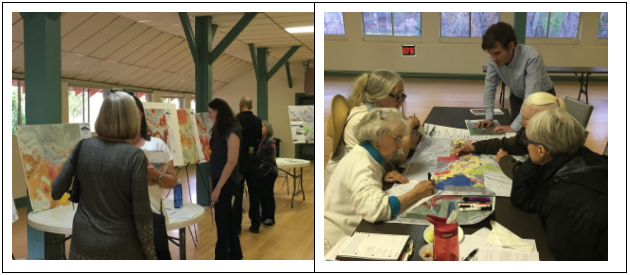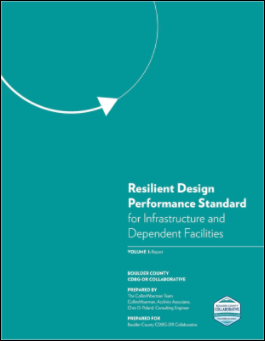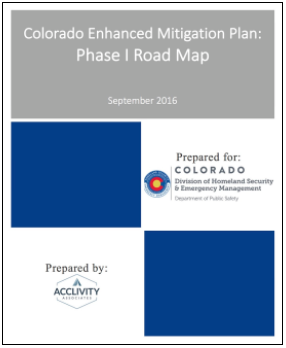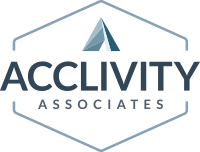Acclivityassociates ACCESSIBILITY STATEMENT
Acclivityassociates is committed to facilitating the accessibility and usability of its website, https://acclivityassociates.com/, for everyone. Acclivityassociates aims to comply with all applicable standards, including the World Wide Web Consortium's Web Content Accessibility Guidelines 2.0 up to Level AA (WCAG 2.0 AA). Acclivityassociates is proud of the efforts that we have completed and that are in-progress to ensure that our website is accessible to everyone.
If you experience any difficulty in accessing any part of this website, please feel free to call us at 123-456-789 or email us at hello@AcclivityAssociates.com and we will work with you to provide the information or service you seek through an alternate communication method that is accessible for you consistent with applicable law (for example, through telephone support).
 The City of Steamboat Springs is developing a plan to improve the health and resiliency of the Yampa River during times of drought and in the face of changing future climatic conditions and water use demands. Acclivity leads a consultant team of experts in river science and community planning, which includes Lotic Hydrological and EcoMetrics, to assist the City in developing the stream management plan. The key objectives of the project are to identify target flows needed to support river health and community needs and to prioritize actions and projects to achieve measurable progress toward these targets. The plan will be based on a comprehensive assessment of river health using best available data and the involvement of a wide range of stakeholders and the community.
The City of Steamboat Springs is developing a plan to improve the health and resiliency of the Yampa River during times of drought and in the face of changing future climatic conditions and water use demands. Acclivity leads a consultant team of experts in river science and community planning, which includes Lotic Hydrological and EcoMetrics, to assist the City in developing the stream management plan. The key objectives of the project are to identify target flows needed to support river health and community needs and to prioritize actions and projects to achieve measurable progress toward these targets. The plan will be based on a comprehensive assessment of river health using best available data and the involvement of a wide range of stakeholders and the community.
The Colorado Department of Local Affairs initiated this project to help communities to prepare for and mitigate natural hazards by integrating resilience and hazard mitigation principles into their plans, codes, and standards. Acclivity supports Clarion Associates in providing technical assistance to two pilot communities to establish a set of land use strategies to reduce future risk. The land use strategies are based on a risk and vulnerability assessment for each community. The project also involves the development of a workbook and supporting materials for community engagement to be used with the pilot communities and other communities in Colorado committed to integrating risk reduction into their local planning and regulations.
Acclivity participated in a team led by Clarion Associates to assist the City of Manitou Springs, Colorado develop a new Community Master Plan/Hazard Mitigation Plan. Acclivity led the development of the Hazard MItigation Plan. This integrated approach was designed to ensure natural hazards planning considerations were incorporated throughout the long-range planning process—from initial discussions regarding issues and opportunities, to the mapping and evaluation of existing conditions, to the development of goals, policies, and implementation actions. The Plan serves as the City’s roadmap to help shape future growth; support economic, environmental, and social sustainability; and make certain that the City remains resilient in the face of future challenges.


Acclivity, in partnership with CollinsWoerman and Chris Poland Consulting Engineer, assisted the Boulder County Collaborative (a partnership of Boulder County communities formed in response to the catastrophic floods of September 2013) in the development of resilience performance goals and a new resilience performance standard for community facilities and infrastructure in Boulder County. Application of the Resilient Design Performance Standard helps design teams to broaden the design process for infrastructure on a project-by-project with the intent to increase the capacity of the whole community to address this increasing variability. Acclivity supported the stakeholder engagement process and provided local expertise on hazard mitigation and recovery planning, as well as assisted in the development of the performance standard, implementation plan, and staff training.
 Acclivity assisted the Colorado Division of Homeland Security and Emergency Management (DHSEM) to assess the potential for accomplishing Federal Emergency Management Agency (FEMA) approval of an Enhanced State Hazard Mitigation Plan, a recognition from FEMA of States who are proactively implementing a comprehensive mitigation program. Enhanced status would designate Colorado for additional FEMA mitigation funds following Presidential disaster declarations. The project involved working with Colorado State agencies through stakeholder interviews and a collaborative workshop to evaluate existing activities and identify opportunities and actions to improve coordination in risk reduction and resiliency. The final deliverable was a report summarizing current activities, opportunities for improvement, recommended actions, and key considerations for State leadership if pursuing an Enhanced State Hazard Mitigation Plan.
Acclivity assisted the Colorado Division of Homeland Security and Emergency Management (DHSEM) to assess the potential for accomplishing Federal Emergency Management Agency (FEMA) approval of an Enhanced State Hazard Mitigation Plan, a recognition from FEMA of States who are proactively implementing a comprehensive mitigation program. Enhanced status would designate Colorado for additional FEMA mitigation funds following Presidential disaster declarations. The project involved working with Colorado State agencies through stakeholder interviews and a collaborative workshop to evaluate existing activities and identify opportunities and actions to improve coordination in risk reduction and resiliency. The final deliverable was a report summarizing current activities, opportunities for improvement, recommended actions, and key considerations for State leadership if pursuing an Enhanced State Hazard Mitigation Plan.

